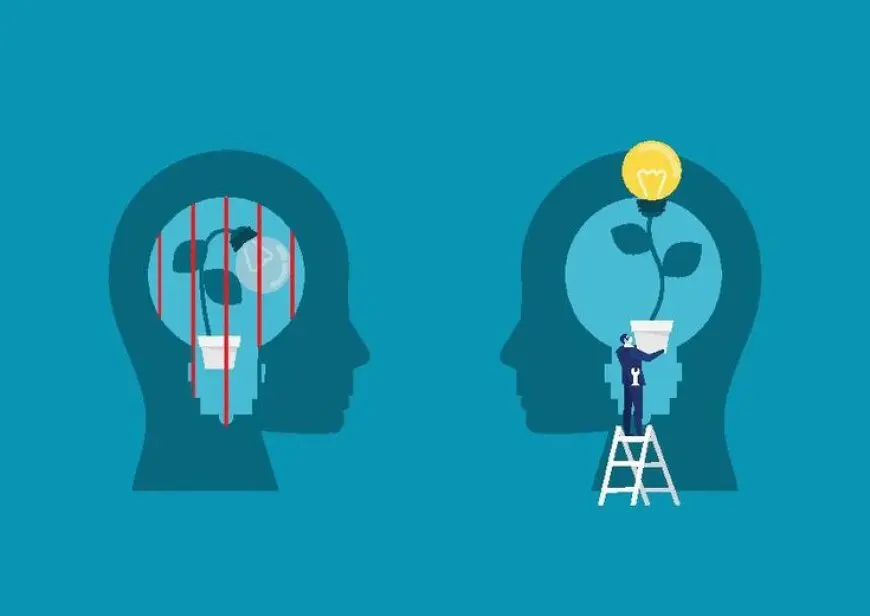How to Cultivate a Growth Mindset
How to Cultivate a Growth Mindset

A growth mindset is the belief that abilities, intelligence, and talents can be developed through hard work, dedication, and learning. This mindset, first popularized by psychologist Carol Dweck, contrasts with a fixed mindset, where people believe their abilities are static and cannot be changed. Cultivating a growth mindset can lead to greater success, resilience, and personal development. It allows you to embrace challenges, learn from failures, and continuously improve. Here are some practical steps to help you cultivate a growth mindset:
The first step to developing a growth mindset is to shift your thinking. Recognize that your brain is like a muscle—it grows stronger with effort and practice. Instead of thinking you are "just not good" at something, start viewing challenges as opportunities to learn. For example, if you're struggling with a skill or subject, remind yourself that with time and effort, you can improve. This shift in perspective encourages a positive attitude toward learning and helps you see mistakes as part of the process, not as failures.
One of the key aspects of a growth mindset is the willingness to embrace challenges. People with a growth mindset see challenges as opportunities for growth, rather than obstacles to avoid. When faced with a difficult task, rather than feeling defeated, they remain persistent and approach the challenge with curiosity. Embracing challenges helps you push beyond your comfort zone and expand your skills. Every time you take on a new challenge, you become more capable and confident in your abilities.
Another important element of a growth mindset is the ability to learn from criticism. Feedback, whether positive or negative, is a valuable tool for growth. People with a growth mindset view constructive criticism as an opportunity to improve, not as a personal attack. They actively seek feedback and are open to suggestions that help them grow. When you receive feedback, consider it thoughtfully and use it to make improvements. The more you embrace feedback, the more you will learn and evolve.
To cultivate a growth mindset, it’s important to set realistic goals and celebrate progress. Rather than focusing solely on the end result, break down larger goals into smaller, achievable steps. This allows you to see progress along the way and stay motivated. Celebrate your successes, no matter how small, as they are signs of growth. By focusing on progress rather than perfection, you can maintain a positive attitude and stay focused on continual improvement.
Another key component of a growth mindset is persistence. People with a growth mindset understand that success doesn’t happen overnight. They are willing to put in the time and effort required to improve, even when the process is slow or difficult. Persistence is a vital trait for achieving long-term success. Whenever you face setbacks, remind yourself that persistence will eventually pay off. By continuing to push forward, you increase your chances of success, no matter how long it takes.
Cultivating a growth mindset also involves changing your self-talk. The way you speak to yourself influences your mindset and actions. If you constantly tell yourself that you can’t do something, you reinforce the idea of a fixed mindset. Instead, use empowering language like "I can improve with practice" or "I will learn from this mistake." Positive self-talk boosts your confidence and encourages you to keep going, even when things are tough. The more you replace negative thoughts with positive ones, the stronger your growth mindset will become.
Surrounding yourself with a supportive environment is another important aspect of developing a growth mindset. When you spend time with people who believe in your potential and encourage your growth, it becomes easier to adopt a similar mindset. Seek out individuals who challenge you, provide constructive feedback, and support your growth. A positive environment can inspire you to take risks, embrace challenges, and pursue learning opportunities.
It's also crucial to adopt a mindset of lifelong learning. People with a growth mindset are always looking for ways to learn and grow, whether through formal education, new experiences, or self-study. Cultivate curiosity and a love for learning by seeking out new skills, knowledge, and experiences. Whether you’re reading a book, taking a course, or simply trying something new, embracing learning as a lifelong journey helps keep your mindset dynamic and adaptable.
Finally, remember that failure is a natural part of the growth process. People with a growth mindset understand that setbacks and mistakes are inevitable, but they don’t let them define them. Instead of being discouraged by failure, use it as a learning experience. Ask yourself what you can learn from the situation and how you can do better next time. By reframing failure as a stepping stone to success, you can overcome challenges with resilience and confidence.
In conclusion, cultivating a growth mindset requires a shift in perspective, dedication, and persistence. By embracing challenges, learning from feedback, practicing positive self-talk, and surrounding yourself with a supportive environment, you can develop a mindset that fuels continuous growth and improvement. Adopting a growth mindset empowers you to achieve your goals, overcome obstacles, and enjoy a fulfilling and successful life.







